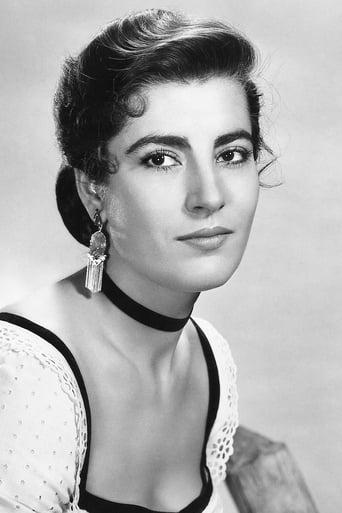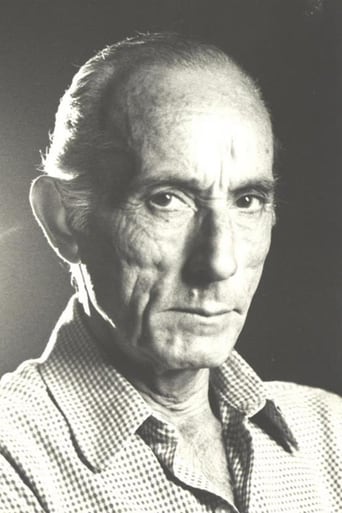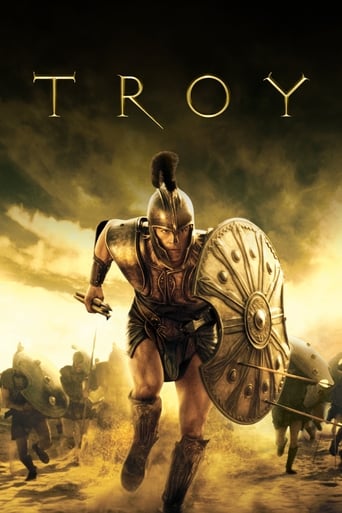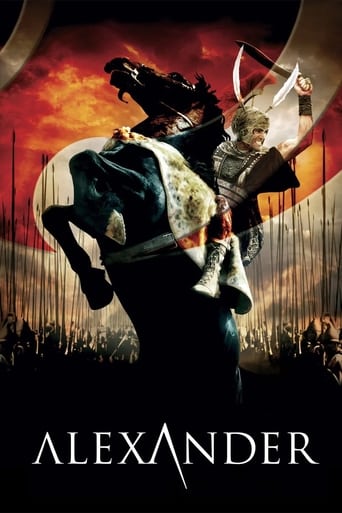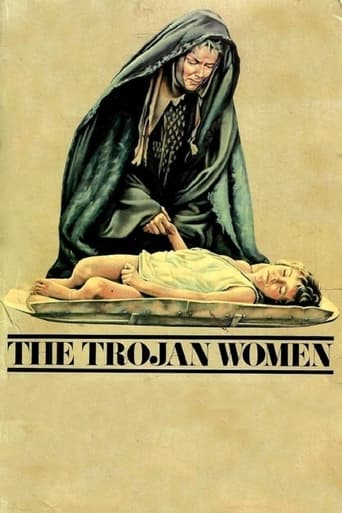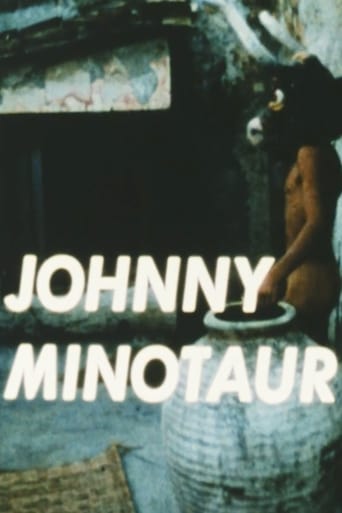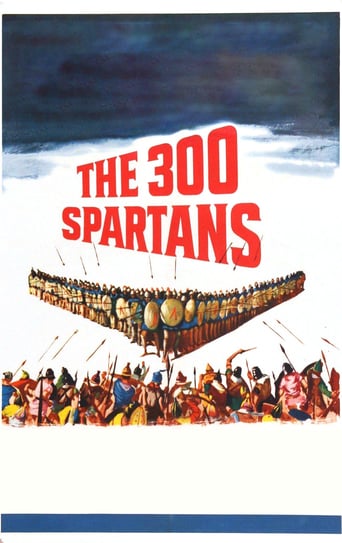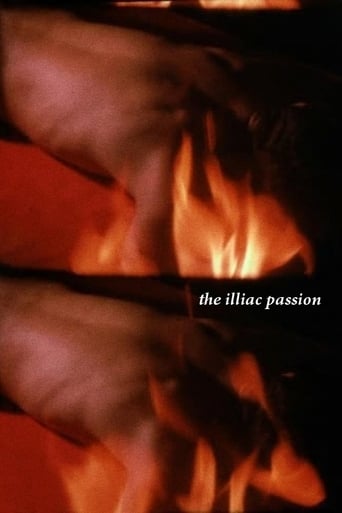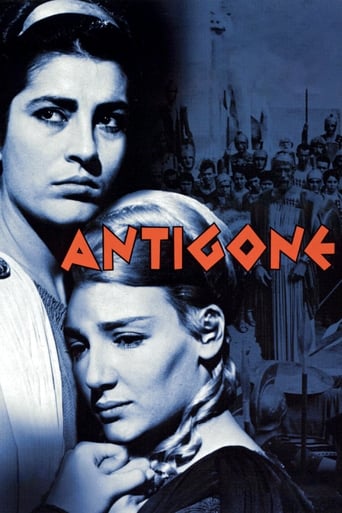
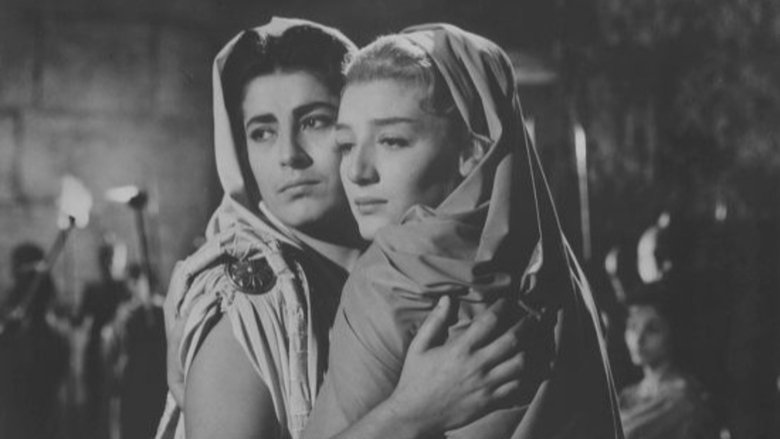
Antigone (1961)
In Thebes in ancient Greece, King Oedipus kills his father and marries his mother Jocasta, having two sons - Eteocles and Polyneices - and two daughters - Ismene and Antigone. King Oedipus dies a beggar in the exile after gouging out his own eye, and Eteocle agrees to reign in Thebes in alternating years with Polynices. However, he refuses to resign after the first year and Polynieces raises an army and attacks Thebes, and they kill each other. The ruler of Thebes Creon decrees that Eleocles should have an honorable burial while the body of the traitor Polyneices should be left on the battlefield to be eaten by the jackals and vultures. However, Antigone, who was betrothed to Creon's surviving son Haemon, defies Creon's orders and buries her brother. When Creon is reported of the attitude of Antigone, he sentences her to be placed in a tomb alive. Antigone hangs herself in the tomb and Haemon tries to kill his father first and then he kills himself with his sword...
Watch Trailer
Cast
Similar titles
Reviews
Such a frustrating disappointment
Good concept, poorly executed.
what a terribly boring film. I'm sorry but this is absolutely not deserving of best picture and will be forgotten quickly. Entertaining and engaging cinema? No. Nothing performances with flat faces and mistaking silence for subtlety.
Each character in this movie — down to the smallest one — is an individual rather than a type, prone to spontaneous changes of mood and sometimes amusing outbursts of pettiness or ill humor.
Antigone, written by Sophocles, is a characteristic Greek tragedy where the city's king, Creon, is faced with a moral dilemma that eventually hastens his fall from grace. Set in antiquity, the movie's plot is designed to question presupposed ideas of justice and wisdom as they were seen through the ancient Greek perspective. In the movie, the protagonist, Antigone, is faced with a moral dilemma after her king, Creon, orders that her brother should be left unburied (a terrible punishment in ancient Greek culture since it would prevent his passage through the river Styx). Eventually, Despite the king's decree, Antigone decided that her brother's death with-out burial was unjust and challenged Creon's authority to prevent his burial by performing the ritual herself. After the discovery of her crime, Creon sentences Antigone to death – an act that created a great deal of unpopularity in the kingdom and incited lines of questioning very similar to contemporary Socratic arguments.Creon's decision to sentence Antigone to death and her brother to a hellish afterlife were seen as unjust and despotic by the people of Thebes and caused his wisdom/authority to be questioned. Since ancient Greeks believed that the Sovereign set the morality of their city state, the act of questioning alone represents Socratic argument. Sophocles sets up questioning, in a manner very similar to Socratic arguments made through Euthyphro and Apology, by using Creon's own son and oracle to test Creon's judgment in an attempt to show that just being a king does not make someone wise or knowledgeable of justice. The morality of Antigone eventually surfaces after Creon's fall from grace. At the end of the movie, Creon finally sees the error of his ways but Sophocles uses his downfall to express how even king's judgment can be governed through hubris instead of actual wisdom.
Antigone is a tragic tale that centers on honor, justice and morals. The story takes place in Thebes soon after the city has been attacked. The movie begins with Antigone and Ismene being devastated after their two brothers killed each other in battle. Antigone tells Ismene how the new ruler, King Creon, is going to provide an honorable burial for Eteocles, but leave Polynieces unburied for the vultures to pick apart for his betrayal to Thebes. The Ancient Greeks held the honor of their cities in very high regard. The fact that Polynieces attacked the city that gave him his life was appalling to King Creon. King Creon based his decision off of divine law and what Zeus would want for betraying ones homeland and brother. This basis can be compared to Socrates' argument that he must obey the gods and his divine sign. King Creon believed he stood for justice and was doing the right thing by following the gods rule, yet in Euthyphro Socrates came to the conclusion that something is not right or just, just because the god commands it. On the other hand, Antigone sees honoring her family and her love for her brother as the right thing to do. Antigone tells Ismene that she is going to give Polynieces a proper burial even if it goes against the King's command. Antigone also bases her decision on the unwritten law of the gods because she thinks it is higher in power than the King's edict not to bury her brother. After Antigone buries Polynieces he is unburied by the King's soldiers and they catch Antigone at the burial site when she returns to her brothers side a second time. King Creon sentences Antigone to death without any deliberation. Haemon, King Creon's son, stands for reason and tells his father that others can be right too and one should not be so fast to judge. He tells his father how the city sees Antigone as noble, but they are too afraid to speak out against the King's verdict. This situation is similar to the trial of Socrates in that all parties on both sides say they believe in the gods and base their decisions off them, yet they all have differing views of what is right. Antigone believed she was following the rules of the gods and standing for the justice of her own blood. King Creon also believed he was following the god's laws and stood for the justice and values of the state. Socrates claimed to be obeying the command of the god and stood for all that is right and good (i.e. virtues, truth, fairness and justice). The jurymen in Socrates' trial accused him of being impious and used the justice of the laws to sentence Socrates to death. In both cases neither side showed any flexibility in what they saw as right and just. There is an ethical dilemma in that what is just is not always morally right and one should use reason to determine this rather than basing decisions solely off the gods command.
The movie, Antigone is based on Sophocles' tragic play. It follows the play's plot perfectly, and does a great job showing the emotional responses of the characters. There is great turmoil within the city after Oedipus left because of exile. His two sons, Polynices and Eteocles are fighting with one another because Polynices raised an army to fight against Thebes. They ended up killing one another leaving Oedipus' two daughters, Antigone and Ismene. Creon was named king after Oedipus left, and he decided that a proper burial should happen for Eteocles, the brother that died as a hero defending his city. As for Polynices, King Creon decided that he was not worthy of a proper burial, and his body must be left unburied for the animals and scavengers. When Antigone heard his edict, she was shocked and upset that King Creon was not going to give both brothers a burial. She plotted against him and decided she would bury him herself. She goes to her sister Ismene for support in her decision, but Ismene wanted no part in Antigone's plan. When the people of Thebes discovered who buried Polynices' body, they were shocked. King Creon sentenced Antigone to death for disobeying his law even though she was engaged to his son, Haemon. He told his people that the laws are the laws and no one is exempt from them, not even his family. The plot quickly turns tragic when Antigone hangs herself in the cave she was sealed in. When Haemon finds her, he is so stricken with grief and anger that he lashes out at his father and ends up killing himself.With this story, there are two major ethical dilemmas that the characters are faced with. Antigone's dilemma deals with her religion and belief that the Gods command all bodies to be buried, and they will cause unhappiness within the city and her family if these commands are not followed. She is also trying to grieve for her lost brother in the best way that she knows how, being a dedicated and honoring sister by burying his body. Antigone was handed a hard circumstance in which she had to choose between the honor and loyalty of her Gods and Family or choose to obey the King. King Creon's dilemma is the fact that his soon to be daughter-in-law disobeyed him, and he has to treat her like a regular citizen in order to maintain the respect he has from the citizens of Thebes. If she was pardoned from the law, other people would start to use that as an excuse to stop following the laws and orders of the King. These two dilemmas are in direct relation to Plato's idea of justice and what is right and wrong. According to Plato's accounts of Socrates' dialogues in Crito and Apology, justice is never doing wrong or causing harm to anyone. In this movie, Antigone felt that it was an injustice to her family and her brother to not bury his body, and it was wrong and unjust in the eyes of the Gods. As Euthyphro would say, it was an impiety to the Gods to leave his body unburied.
I believe the director's purpose was to persuade the audience to consider the following argument: Man is given only a limited number of chances to change his unrighteous/stubborn behavior into something more righteous, just and humble. If man refuses to submit to these chances, thereby procrastinating his repentance until the end, he not only causes unnecessary suffering upon others, but also upon himself. This theme is illustrated through Creon in four ways.Creon is given many chances throughout the film to change from stubborn tyrant to humble citizenone who is equal and open-minded with everyone else. His first opportunity to change occurs through the exchange of words he has with his son, Haemon. Haemon attempts to persuade his father to free Antigone by stimulating his mind to reason. He graciously tells his father that he respects him, and that he will submit to his will if it be just. However, Haemon does not believe his father's will is just, and attempts to open his mind to other truths that exist outside his narrow perspectivenamely, the truth of what Antigone did for her brother was noble and laudable. Haemon also gives a metaphor to what will happen to his father if he does not submit to humility: "Pliant trees survive even the fiercest storms. But rigid trees will break and collapse in the slightest wind." Even hearing the Chorus say that the words of his son are worth giving attention to, Creon is too dogmatic at this point. It's going to take a lot more to change his heart.His second opportunity to change is given to him through Antigone's last testimony before she is sentenced to dwell forever in the cave. Feeling that death is about to overtake her, she cries out to Creon, asking him what she has done wrongwhat law she has broken. She admits that if her action is wrong, she will repent of her sins. But she also admits and prophesies that if her accuser is wrong, that the same death and curse placed upon her will also come upon him. This is a foreshadow of what was yet to take place to Creon, a man who continued to act as the rigid tree his son earlier warned him about (kind of like an Abinadi moment). Still, Creon is set in his ways and refuses to renounce his unrighteous judgments.His third opportunity to change seems to be the most effective in softening his heart. Knowing that the prophet has never been wrong about any foretold prediction, the blind prophet foretells the terrible fate that lies at Creon's discretion if he does not change. These words carry heavy weight into Creon's heart, causing him to now consider freeing Antigone and burying Polynices.The fourth opportunity comes from the Chorus. Upon contemplating the prophet's words, Creon announces, "Tell me what I must do and I will do it." The Chorus reproaches the king and tells him that he must free Antigone and bury Polynices in order for the curse to be removed. However, by the time he acts on this advicewhich was the advice he was given all alongit is too late. Antigone, Haemon, and his wife all end up killing themselves as a result of Creon's procrastination. He now finds himself in a world of pain, having finally learned to comply with obedience through the things in which he suffered, but was now too late to do anything about. The last scene where Creon is escorted outside the walls of the kingdom produced a haunting image for me in what will happen to those who procrastinate the day of their repentance. Those who do so will, in a like manner, be escorted outside the celestial gates by the sentinels that guard themkeeping the impure and unholy out.
